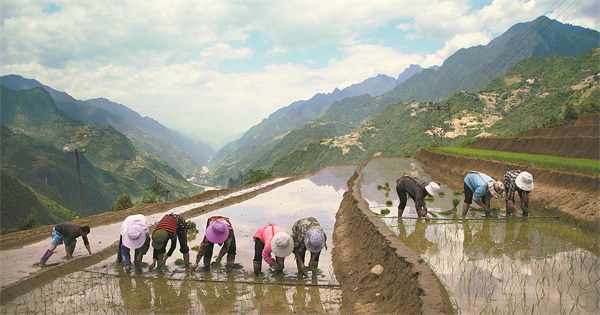

"There are rivers and fields in the village, so people can feed themselves by farming, but they could not develop since there was no good road," says Chai.
Crew members recorded how desperate people were for a new road, and how it was finally built by the local government. The local government also built new apartments in a settlement at the foot of the mountain, asking locals to move there for a more convenient life. Some moved and some stayed in their old place, but their lives became different when the new road was completed in 2021.
"Now, it only takes about 30 minutes to reach the village from the foot of the mountain by car," says Chai.
Local products can be sold in other places, and tourism is being developed in the area, with communal facilities to be built in the future.
Robert Walker, a professor at the School of Sociology, Beijing Normal University, who is also a fellow of the British Academy of Social Sciences and the Royal Society of Arts, says: "The images are so real and full of colors and emotions. They are so beautiful showing people in the landscape. You can see emotions, like fear, anxiety, compassion, hope and happiness, from the film."
Walker highlights crew members' efforts to show children of the village. "What I like most about the film is the central place of children. The children are not regimented in school but outside playing with each other, adding a spirit to the community," says Walker.
Chai says before attending primary school, children in Shawa had no chance of leaving the village to go to town. "Since the mountain road was too difficult to trek on, children had to be carried by their parents downhill. It took an adult five to six hours to make a round trip, and with a child on their back the time often doubled. As a result, children seldom had a chance to go outside until they could go on their own," says Chai.
Since there was no kindergarten in the village, children played every day when they were young, and sometimes were taught to read poems by Zhu Yun, a soldier from the prefecture who helped with poverty alleviation in Shawa, the documentary shows.